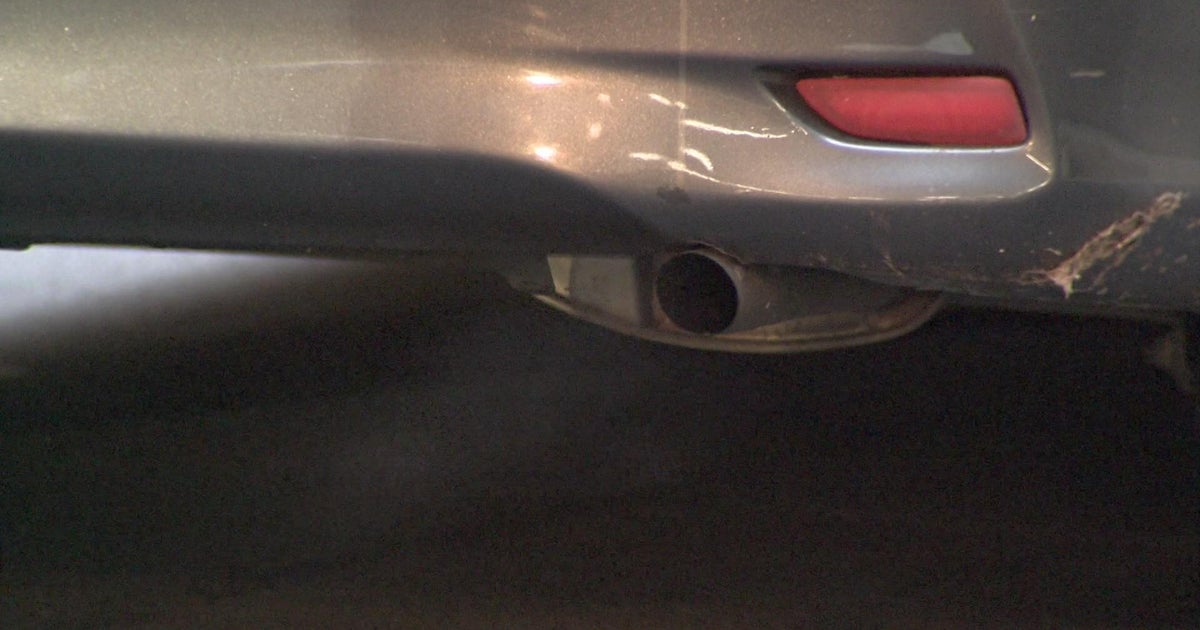London business owners say NYC "dodged a bullet" with congestion pricing pause: "It's just another tax"
NEW YORK -- New York's congestion pricing plan was modeled off London's congestion charge, so CBS New York sent reporter Ali Bauman across the pond to study its impact.
She took a look at how the charge affects British businesses and the environment in London to see what could have been in New York.
How London businesses have been impacted by congestion charge
Yahya Oz's Central London restaurant is in the city's congestion zone, an area about the same size as Manhattan's Central Business District.
"It is getting very, very difficult to run a business in Central London," Oz said.
Ever since London implemented congestion pricing in 2003, most cars have to pay once per day to drive into the zone. The charge is now up to 15 pounds, or about $18.
"It puts off lots of people driving through London," Oz said.
His struggle echoes Gov. Kathy Hochul's explanation for putting New York's congestion pricing plan on hold in June.
Michael Kill -- the chief executive of Night Time Industries Association, representing 10,000 businesses in the United Kingdom -- says he believes "without a doubt" that the congestion charge hindered the hospitality industry's recovery from the pandemic.
"We've come out of the pandemic and we've come into a cost-of-operating crisis where we've seen about a 30 to 40 percent increase in operating costs ... at a period where people haven't got as much disposable income. I think that's hit very hard and people are being more selective," Kill said.
Simon Thomas, chair of the Hippodrome Casino in Central London's West End, says as the charge increased over the years, so too did the cost of doing business.
"We also have to pay for all of the delivery drivers, handymen that come in, workers. They just add the charge to their bills," he said.
That price is often passed on to customer.
"New York's dodged a bullet. It's just another tax," Thomas said.
In 20 years of congestion pricing, London has invested 2.6 billion pounds, or $3 billion, of revenue from the charge into public transportation, bike lanes and expanded sidewalks.
"It's been shown over time that quite often people who travel by public transport or who walk and cycle tend to linger for longer in those high streets," said Alina Tuerk of Transport for London, the agency which operates congestion pricing. "Central London remains very busy, and you see leisure travel has really gone up so lots of people coming in, using all those modes that are available."
Has London's congestion charge helped lower air pollution?
Besides traffic, the other big argument in favor of congestion pricing is to lower air pollution.
Inside the main air pollution monitor in Central London, which sits on the congestion zone's border, analyst Andy Grieve showed Bauman some of the tools that have been tracking London's air quality for 30 years.
"All of these instruments are pulling in air from outside and drawing it down and sampling it ... to figure out what is in the air pollution and where it comes from," he said.
Data shows concentration of the toxic gas nitrogen dioxide in London's air has decreased by more than 65% in the past decade.
"You can actually feel that the air is cleaner in London than it was 10 years or 15 years ago," said Simon Birkett, director of the nonprofit Clean Air in London.
"Has the congestion charge in London been effective in cleaning the air here?" Bauman asked.
"I don't think it's right to think of congestion charging as a main air pollution measure," Birkett said.
In the years since the charge was first introduced, London has created a larger zone on top of its initial congestion charge zone to combat pollution, adding a charge specifically for high-emissions vehicles.
"What I'd really like New York City to be doing is pushing down on vehicle tailpipe emissions ... On the other hand, is be encouraging more walking, cycling, use of buses and mass transit," Birkett said.
So even without congestion pricing, he says, New York can still clean its air.






